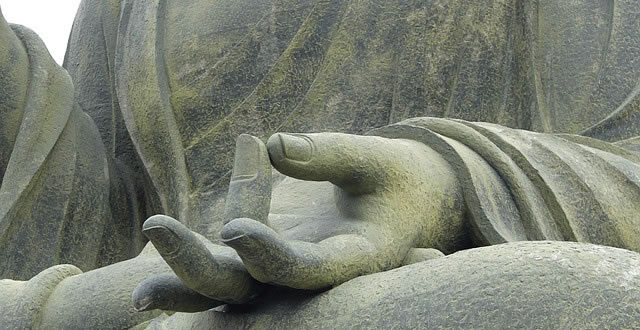What Is Buddhism?
Buddhism is an ancient religion and a philosophy with a complex history that dates back to the sixth century BCE. It is based on the teachings of Siddhartha Gautama and his spiritual awakening. He is a prince from the Shakya tribe in India who is known as “The Buddha,” which means “The Awakened One” or “The Enlightened One.” Siddhartha Gautama set out on a spiritual journey over 2500 years ago in search of Enlightenment. He claimed to have achieved it under a bodhi tree by meditating for several days. After achieving Enlightenment, he developed the Four Noble Truths and the Eightfold Path, known as the Buddha Dharma (“The Law of the Buddha”).
Buddhism is a non-theistic religion, meaning it does not believe in a single deity or creator. It focuses instead on one’s own spiritual journey and inner work, which leads to enlightenment and understanding of the truth.
The Buddhist Teaching and Its Core Philosophy!
The core philosophy behind Buddhism known as the Buddhist faith is the Four Noble Truths, which teach followers to embrace life’s inevitable suffering, impermanence and causality. It also emphasizes meditation, mindfulness and compassion. Some scholars believe that the earliest followers of Buddhist practices may have lived as early as 800 BCE to 500 BCE, although the earliest written records of Buddhist teachings date back to the 5th Century BCE. According to the Buddhist teaching, the Four Noble Truths state that life is characterized by suffering, that suffering is caused by attachment and craving, that suffering can be alleviated through detachment and correct understanding, and that these insights can be attained through the Eightfold Path.
The Eightfold Path consists of right views, right intention, right speech, right action, right livelihood, right effort, right mindfulness, and right concentration. These teachings emphasize the importance of morality and kindness, as well as the interconnectedness of all things. Buddhism is not a theistic religion, as it does not believe in a creator god. Followers of Buddhism strive to attain Enlightenment, release from attachments and cravings, and free themselves from the cycle of suffering and rebirth.
In summary, Buddhism is a religion and philosophy based on the teachings of Siddhartha Gautama, known as the Buddha. It originated in India over 2500 years ago and is centered around the Four Noble Truths and the Eightfold Path. Buddhism is not a theistic religion and instead encourages followers to strive for Enlightenment by attaining detachment, understanding right views, and following the Eightfold Path.
The Four Noble Truths and The Eightfold Paths of the Buddhist teaching:
The Four Noble Truths:
1. The truth of suffering (dukkha): Life is filled with suffering and pain caused by unsatisfied desires.
2. The truth of the origin of suffering (samudaya): Suffering is caused by attachment to things and cravings for instant gratification.
3. The truth of the cessation of suffering (nirhodha): Suffering can be eliminated by letting go of these attachments and cravings.
4. The truth of the path leading to the cessation of suffering (magga): The Eightfold Path is a set of teachings designed by the Buddha to show the way to end our suffering and find true peace.
The Eightfold Path:
1. Right Understanding (samma ditthi): This is the understanding of the Four Noble Truths and the nature of reality as it really is.
2. Right Intent (samma sankappa): This involves having positive and altruistic intentions, abandoning negative intentions and wanting to follow the path of liberation.
3. Right Speech (samma vaca): This means abstaining from lying, malicious talk, coarse language and idle chatter.
4. Right Action (samma kammanta): This is the practice of non-harming, truthfulness and non-stealing, and avoiding harmful substances and practices.
5. Right Livelihood (samma ajiva): This means abstaining from occupations and activities that are harmful to oneself or others.
6. Right Effort (samma vayama): This is the practice of making the required effort to develop mental qualities such as concentration, equanimity, mindfulness and wisdom.
7. Right Mindfulness (samma sati): This involves cultivating awareness and insight into objects of one’s attention.
8. Right Concentration (samma samadhi): This involves training the mind to focus on one-pointedness and entering into higher concentrations of meditation.
Cheers!
For more stories follow me on Telegram













